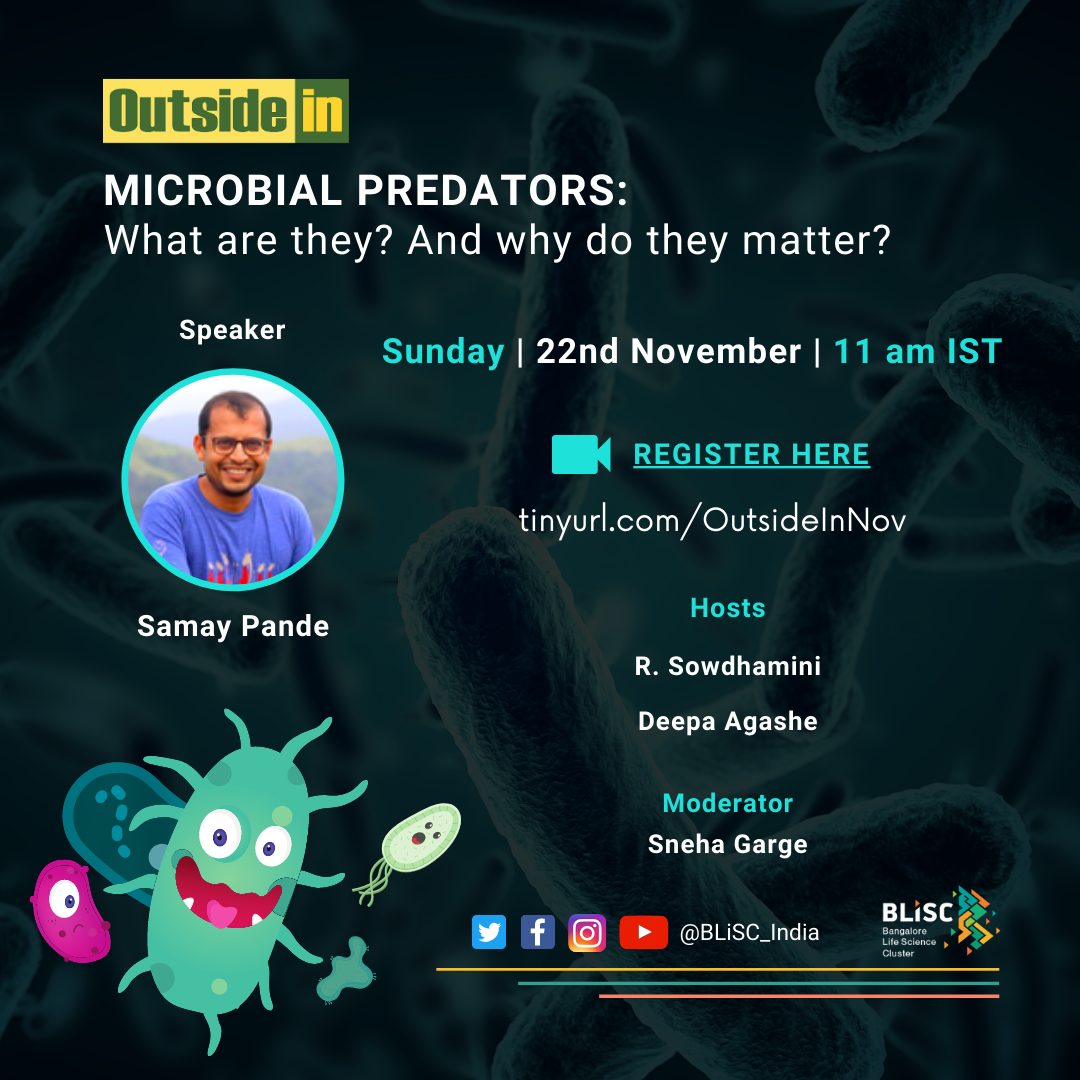OutsideIn | Microbial predators: What are they? And why do they matter? with Dr. Samay Pande
In November 2020, OutsideIn talks are on microbial lives!
In the third session, Dr. Samay Pande, of the Department of Microbiology and Cell Biology at the IISc, will speak about microbial predators! Bacterial predators use a range of predation strategies ranging from solitary ones to group predation, here we will study how these pervasive organisms might be actively shaping the world we live in.
Predator-prey relationships are one of the most ancient forms of interactions among organisms. A wide body of research has exhaustively summarised the evolution of predator-prey interactions among higher eukaryotes. However, though the first predatory bacteria were discovered more than seventy-five years ago, microbial predator-prey interactions have only recently attracted the attention of researchers. This is primarily because of their likely utility in fighting antibiotic-resistant pathogenic bacteria. Moreover, since predatory bacteria are distributed in a wide variety of environments, by controlling the modifying the bacterial populations in nature, bacterial predators are likely to influence the microbial diversity and community functioning.
I will discuss the distinct predation strategies used by bacteria to hunt their prey, with the focus on social bacterial predator Myxococcus xanthus. Research in our laboratory suggests that M. xanthus in nature might be responsible for the enrichment of antibiotic-resistant bacteria. Interestingly, we are also exploring social predators such as M. xanthus for alternative strategies to control microbial infestations.
This series of talks is hosted by Dr. Deepa Agashe and Prof. R. Sowdhamini. This session is moderated by Sneha Garge, a post-doctoral fellow at NCBS.
11am (IST) | 22 November, Sunday
Register for the November sessions here (us02web.zoom.us/webinar/register/WN_kmVECe9kRUyQGni_pir8Nw)



